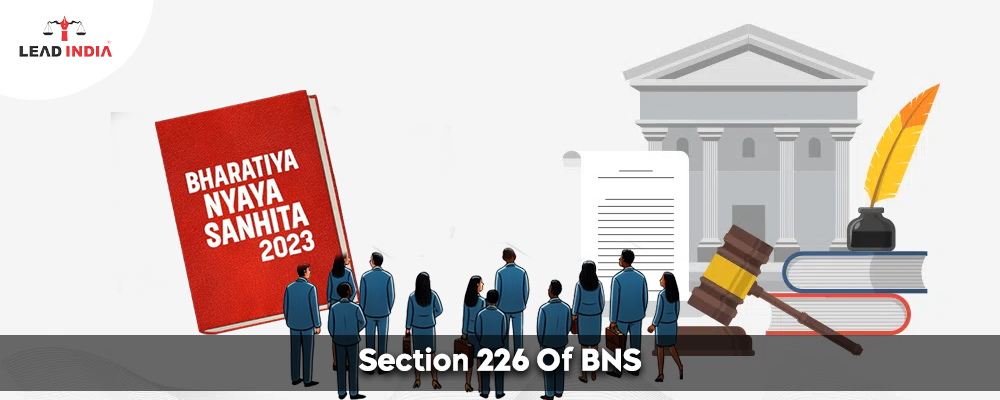The act of making suicide attempts illegal punishes people when they are at their most vulnerable and unhappy. Although attempted suicide is now considered a non-crime under the Mental Healthcare Act, 2017 (MHCA), section 309 of the IPC is still in effect. This has caused significant misunderstanding among relevant stakeholders regarding the relationship between the MHCA provision and section 309 in day-to-day clinical practice. But a revolutionary change is approaching with the Bharatiya Nyaya Sanhita 2023 (BNS), which, if approved by Parliament, will take the place of the IPC.
Attempts to Commit Suicide under BNS
- Section 309 of the Indian Penal Code is completely eliminated under the new BNS Act.
- As a result, trying to commit suicide will no longer be illegal in India.
- Nonetheless, it is still illegal to attempt suicide in an effort to keep a public worker from performing their job.
Need A Legal Advice
The internet is not a lawyer and neither are you. Talk to a real lawyer about your legal issue

Section 226 of BNS
- This is a new clause inserted under the Bhartiya Nyaya Sanhita, 2023.
- Suicide attempts made in an effort to prevent or limit the use of legal authority under the Bharatiya Nyaya Sanhita (BNS) are covered in this particular section.
- According to the Bhartiya Nyaya Sanhita, 2023, anyone attempting suicide with the intention of forcing or preventing a public servant from carrying out his official duties faces a simple jail sentence of up to 1 year, a fine, both, or community service.
Introduction of Community Service under BNS 2023
- ‘Community Service’ has been offered for the first time as an alternative to incarceration in the BNS, 2023.
- This positive development represents a substantial change in the field of penology within the Indian criminal justice system.
- Among the many goals that punishments aim to achieve are vengeance, justice, deterrent, reformation, etc.
- There are multiple benefits to using community service as a jail substitute. It instantly avoids adding to the already excessive workload in our already overcrowded jail from the standpoint of state resources.
- “Community service” is a new post-conviction punishment that the BNS has implemented. From the perspective of criminal justice, its implementation is a good move, and it is a helpful provision. Notably, community work cannot be required as a condition of release on bond.
Development of Community Service in India
- The Court in Babu Singh v. State of Uttar Pradesh determined that alternative and reformative methods of punishing the accused were crucial. Study sessions or meditation exercises were recognized by the court as an alternate or reformative method of penalizing the accused.
- Subsequently, the court reiterated the importance of community service sentencing in India to overhaul the criminal law justice system in Sunita Gandharv v. State of Madhya Pradesh. The court noted that an accused person is within the bounds of justice and the criminal justice system if they are released on bail and ordered to perform community service, such as planting saplings, working in hospitals, or performing similar tasks. They are also not allowed to alter evidence or make threats against victims.
- The Delhi High Court once more mandated community service in a case similar to Sanjay Choudhury v. State. As a result, community service has been a successful substitute for jail time and penalties in High Courts. The treatment of people charged or found guilty of little criminal infractions, as well as those who are first-time offenders, in Indian prisons is a major cause for concern because of overcrowding and inadequate amenities and infrastructure.
One can talk to a lawyer from Lead India for any kind of legal support. In India, free legal advice online can be obtained at Lead India. Along with receiving free legal advice online, one can also ask questions to the experts online free through Lead India.





 Talk to a Lawyer
Talk to a Lawyer